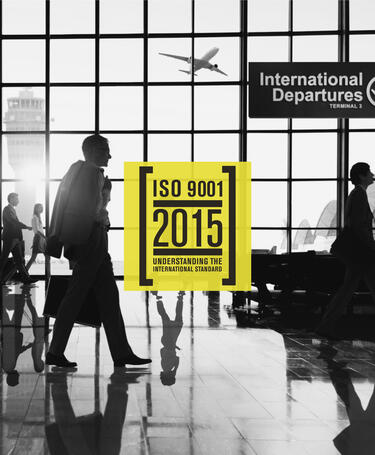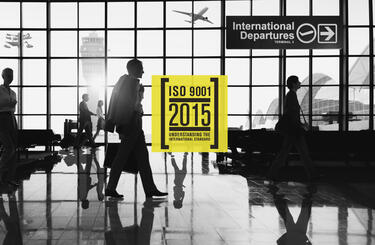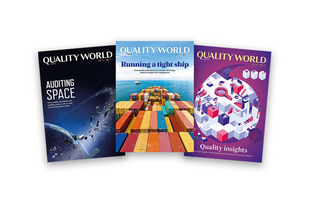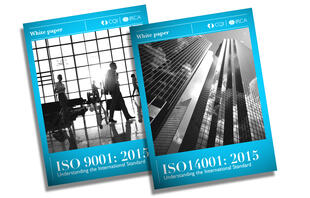
The journey to ISO 9001:2015
Progress indicator

Richard Green says the transition to ISO 9001:2015 is a big piece of work, but no more than a change management project.
Now the initial euphoria surrounding the launch of ISO 9001:2015 has subsided, the reality is setting in that at some point in the not too distant future those organisations who wish to retain their ISO 9001 certificates will actually need to effect transition.
There’s no immediate panic of course. A window of opportunity stretches through to September 2018, but this is one boat you certainly don’t want to miss.
If you leave it late you are likely to find yourself on a crowded dockside competing for the attentions of your certification body with the rest of the milling throng.
The use of the ‘T’ word can cause consternation, however if the process is properly controlled (and it is a process in the traditional sense with inputs, outputs, activities, resources and controls) it’s a relatively straightforward undertaking.
Yes, it’s a big piece of work. However, there’s no alchemy involved, just the need for sound project management.
What we are looking at here is essentially a change management project for the business.
Think of transitioning as a journey you have to undertake.
It has a destination – ISO 9001:2015 compliance, an origin, your current 2008 QMS, and then there’s that scary bit in the middle, which is actually getting from one to the other.
Whilst the destination is common, the origin will be unique to you. Every organisation will be starting from a different place.
Some will be closer to the destination as they are currently going over and about the 2008 requirements.
Others who presently struggle to comply with 2008 as it stands will have correspondingly further to go.
The length of your journey is unique to you.
The Length of the journey – will be impacted by
- The range of products and services you offer
- The complexity of the processes you operate
- The complexity of your supply chain
- The diversity of relevant interested parties requirements
- Your own starting point – whether you are meeting ISO 9001:2008’s explicit or its explicit and implicit requirements
- Your current culture – how quickly can you drive required change through?
And as with any journey, perils await the unwary traveller.
Where could it all go wrong?
- You misunderstand what you need to do to satisfy the new requirements and therefore make inappropriate adjustments to your QMS
- You underestimate the extent of the required changes
- Your top management decide it is not worth the effort
- You do not invest sufficient effort in planning the transition
- Your ‘business as usual’ suffers whilst you are focussed on transitioning
- You receive and act on bad advice from your consultant / certification body
- You fail to engage your staff
- You fail to communicate your intentions to your stakeholders
- You leave it too late – you should start thinking about your own transitioning now
- You do not allocate sufficient transition resources (personnel and budget)
Making the journey smooth
- Talk to your certification body, what advice can they offer?
- Educate your top management, this will impact them directly
- Know the new standard
- Produce a draft project plan, communication plan, risk and issue logs, and project organisational chart for your transition project
- Communicate these documents and secure ‘buy in’
- Allocate budgets, this change won’t happen for free.
- Undertake a gap analysis – produce and complete checklist of new evidences, documents, processes, records resources. Periodically re-run the gap analysis to check the gap is reducing
- Carry out trial audits, act on their findings
- Remember, it is not too early to start!
Formulate a “Plan B”.
Why bother planning for your transition?
- Your plan communicates a common vision, purpose and direction to everyone affected by the transition
- Without a plan the decisions you make and the actions you take will be reactive as opposed to proactive
- Your plan will provide you with a clear and logical road map to get you to where you need to be
- Your plan will allow you to monitor your progress
- Your plan will give you and your organisation focus
Richard Green is IRCA’s head of technical services.
Learn more about the implications of the standard for quality professionals
Member only

This article is free to access for a limited time only. Only CQI and IRCA members receive access to all content.
Get the latest ISO reports and resources

Our many reports and resources will help you achieve a smooth transition to ISO 9001:2015 and ISO 14001:2015.